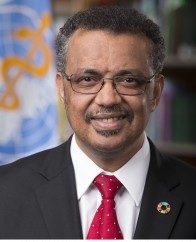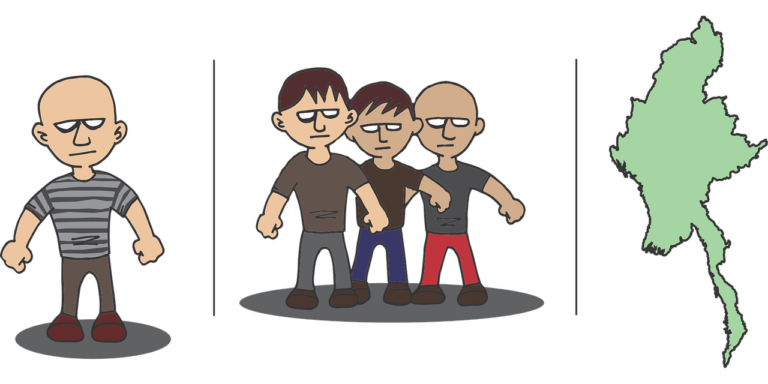

By Dr Tedros Adhanom Ghebreyesus*
Director-General, World Health Organization
Geneva: This past Saturday marked three years since WHO [World Health Organization] first said that the global outbreak of COVID-19 could be described as a pandemic. It was a significant moment and one that garnered the attention of the world’s media.
However, from WHO’s perspective, the far more significant moment came six weeks earlier, on the 30th of January 2020, when I declared a public health emergency of international concern. At the time, there were fewer than 100 reported cases of COVID-19 outside China and no reported deaths outside China.
Three years later, there are almost 7 million reported deaths from COVID-19, although we know that the true number of deaths is much higher.
However, we are certainly in a much better position now than we have been at any time during the pandemic.
It’s very pleasing to see that for the first time, the weekly number of reported deaths is now lower than when we first used the word “pandemic” three years ago. The improvement is significant. I am confident that at some point this year we will be able to say that COVID-19 is over as a public health emergency of international concern – and as a pandemic.
What is most important now is that we all learn the lessons of the pandemic. If we do not, we will repeat the cycle of panic and neglect that has been the hallmark of the global response to epidemics and pandemics for decades. But if we do, we can make the world safer for ourselves, and for those who come after us.
So what has the pandemic taught us? Let me offer three lessons.
The first is the importance of public health
The pandemic is a vivid demonstration that an advanced medical care system is not the same thing as a strong public health system. Some countries with the most sophisticated medical care were overwhelmed by COVID-19. By contrast, some middle-income countries with fewer resources fared much better, thanks to investments in public health after outbreaks of SARS, MERS, H1N1 and others. They had muscle memory, and they did better. For example, the simple art of contact tracing is one that many high-income countries have forgotten how to do, but it’s second nature to many low- and middle-income countries because of their experience with outbreaks of infectious disease.
The backbone of public health is robust primary health care, for detecting outbreaks at the earliest possible stage, as well as for preventing disease and promoting health at the community level. That is why WHO is calling on all countries, at all income levels, to invest in public health, especially in primary health care. Such investments will repay themselves many times over, by preventing and mitigating the impact of epidemics and pandemics, but also by preventing or delaying the need for more costly secondary and tertiary care.
The second lesson is about the importance of science
Throughout the pandemic, science has given us the tools to understand how this virus spreads, how it causes disease, and how to stop it. Science enabled us to sequence the virus within days of the first reported cases and to develop tests, treatments and vaccines faster than for any pathogen in history. And yet, in some countries and communities, and on social media, the marginalization and politicisation of science have impeded the response to the pandemic and cost lives.
Masks, vaccines, “lockdowns” and other public health measures have been deeply politicised. And the question of how the pandemic started remains unanswered. Finding the answer to this question remains a scientific imperative, to help us prepare for, prevent and respond to future epidemics and pandemics. But it’s also a moral imperative, for the sake of those we have lost. And yet more than three years after this outbreak started, we still don’t know how due to a lack of cooperation from China to be transparent in sharing data; and to conduct the necessary investigations and share the results.
I believe you have heard me say this many, many times: until those studies are done, all hypotheses on the origins of the virus remain on the table. But if any country has information relevant to any hypothesis, it is essential for that information to be shared with WHO and the international scientific community.
This leads me to the third lesson.
The importance of cooperation
At exactly the moment when the world needed to come together to face this common threat as one, the COVID-19 pandemic has been characterised by a lack of cooperation and coordination. Instead of a coherent and cohesive global response, the pandemic has been marked by a chaotic patchwork of responses. This is because of narrow nationalism.
We can only face shared threats with a shared response, based on a shared commitment to solidarity and equity. That is what the pandemic accord that countries are now negotiating is all about: an agreement between nations to work in cooperation with each other – not in competition – to prepare for and respond to epidemics and pandemics. It’s essential to emphasise that this accord is being negotiated by countries, for
The claim by some that this accord is an infringement of national sovereignty is quite simply wrong. The nations of the world already have numerous treaties against threats of our own making, like nuclear, chemical and biological weapons, tobacco, and climate change. So surely it makes sense for countries to agree on a common approach to a common threat that we did not fully create and cannot fully control – a threat that comes from our relationship with nature itself.
It’s vital that we all make an honest assessment of the pandemic and learn its lessons, so we don’t repeat the same mistakes again. We owe it to the millions we have lost, and to those who will come after us – our children and grandchildren. If we make the same mistakes again, I don’t think we will forgive ourselves, and I don’t think our children and grandchildren will forgive us. The pandemic accord that’s being negotiated should incorporate all the lessons learned so we don’t make the same mistakes again.
*Excerpted from the keynote speech at the Thomas Francis Jr. Medal in Global Public Health award ceremony today (IST)






1. In future WHO has to take a lead in establishing cooperation in health care amongst limited resource countries & helplines from rich countries , during pandemics , epidemics & disasters.
2. Now we have to concentrate on detection & management of post COVID illnesses worldwide.
3. To endeavour through UNO to totally ban biological warfare .
This my first comment, pl. register it.
1. In future WHO has to take a lead in establishing cooperation in health care amongst limited resource countries & helplines from rich countries , during pandemics , epidemics & disasters.
2. Now we have to concentrate on detection & management of post COVID illnesses worldwide.
3. To endeavour through UNO to totally ban biological warfare .
1. Enhance HealthCare cooperation amongst low resource countries.
2. Detection & management of post COVID illnesses.
3. UNO to impliment Ban on Biological warfare.
International Health care scheme during pandemics & disasters.
Treaty to Ban Biological warfare.